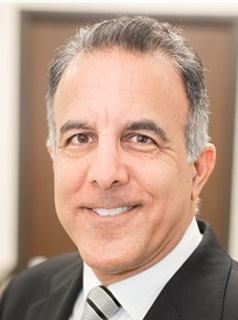Not Getting Enough Sleep Can Affect The Weight Of Your Children
Sleep has long been linked to a number of problems when it isn’t obtained at the correct levels. For children this means sleeping eight to ten hours each night undisturbed, and in this day and age the number of distractions and noisy electronic devices that fill your home may be the culprit behind their lack of sleep. Unfortunately, new studies have shown that not getting enough sleep will not only leave your little one groggy, it may also lead to weight gain and possible levels of obesity as they begin to grow and develop. Medical News Today says: “The researchers were working on a project called Sleep ImageIn that explored the link between sleep duration in third and sixth grade children and their risk of being overweight.”
The study reflects on the weight of children who are between the ages of nine and twelve that are at risk for being overweight due to their sleeping habits. This study was then published in the journal of Pediatrics on November 5th by Dr. Julie Lumeng who works at the department of Human Growth and Development at The University of Michigan.
What Dr. Lumeng Discovered
The team soon discovered that there were a large number of children that weren’t getting the number of hours they required as far as their sleeping was concerned. This could cause them to become moody, fatigued, and cause low grades in school and heavier weight. In the past, studies such as this one have been run on adults and have proved similar findings that there are risks of obesity with lack of sleep, and that the effect on children may be even worse. Socioeconomic factors are still not ruled out, but Dr. Lumeng found that if a child sleeps less than nine hours each day, no matter the sex, race or socioeconomic status, there is an increase in the risk of obesity. Harvard University states: “Sleep-deprived people may be too tired to exercise, decreasing the “calories burned” side of the weight-change equation. Or people who don’t get enough sleep may take in more calories than those who do, simply because they are awake longer and have more opportunities to eat; lack of sleep also disrupts the balance of key hormones that control appetite, so sleep-deprived people may be hungrier than those who get enough rest each night.”
The finding were most predominant among sixth graders who slept least and thus were more likely to be overweight, despite what their body mass index showed in the third grade and below. To fully uncover this data she and her team of researchers studied numbers of sleep hours and BMI of more than seven hundred children between the ages of nine and twelve. Half of these participants were male, and the other half female, with eight-one percent being made up of white children. These records came from the National Institute of Child Health and Human Development Study of Early Child Care and Youth Development, and helped to shape the study into what it has now become.
Results And What They Mean
The findings suggested that sixth grade kids who slept less were overweight, and that most of the overweight children were boys, suggesting that male students get less sleep than females. The girls, however, were the ones who reported the most sleeping problems, but these problems were not related to being overweight as the lack of sleep was. The Daily Mail reports: “Lower sleep scores were more common in homes with lower incomes, less maternal education and among racial and ethnic minorities; but the association between sleep and obesity was not changed by adjusting for those and other factors.”
The study also determined that for every one additional hour of sleep that a sixth grader received, there was a twenty percent decrease in the risk of obesity. They also found that by gaining additional hours of sleep in the third to sixth grade they could reduce risks of obesity as well.
Helping Your Child Rest
Among the many methods listed to help your child get the sleep that he or she needs, keeping them from snacking before bedtime was among the top. While a bed time snack might seem like a good idea in theory, in practice it can be a whole other story. Eating before sleep time can give our child additional energy, cause physical reactions to take place in their body, and stimulate senses that would otherwise be resting. Instead of giving them toast, cookies, or warm milk before bed, try limiting these snacks to two hours before they put on pajamas and turn in for the night. Creating a fixed bedtime schedule with a routine that is followed daily is another way to prevent sleep deprivation and give your little girl or boy a better rest over the nighttime period.

WARNING: Limitations of Online Doctor/Medical Consultations and Online Prescriptions, QuickRxRefills Cannot and Will NOT Prescribe, Dispense, or Resell any and all medications Narcotics/Controlled Substances (this policy is fully enforced by the Drug Enforcement Administration (DEA)) for Anti-depressants, Pain, Anxiety, Weightloss, Sleep, ADHD/ADD, Anabolic Steroids, Testosterone Replacement Therapy and any and all Medications that contain GabaPentin or Pseudroephedrine including non-controlled substances or any medications that are considered controversial, Off Labeled (Growth Hormone aka HGH) or recalled in nature such (i.e. Retin-A, Accutane). Furthermore, QuickRxRefills is not a substitute for an office based physician in your location nor is it a substitute for Emergency Medical Care or 911. If you do experience a "true" medical emergency your are encouraged to pick up the phone and dial 911 as soon as possible.






